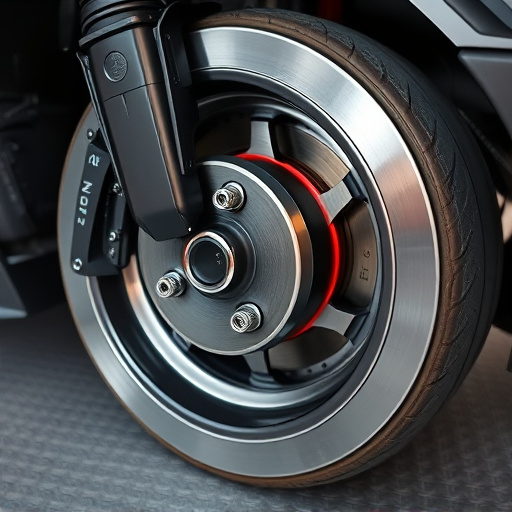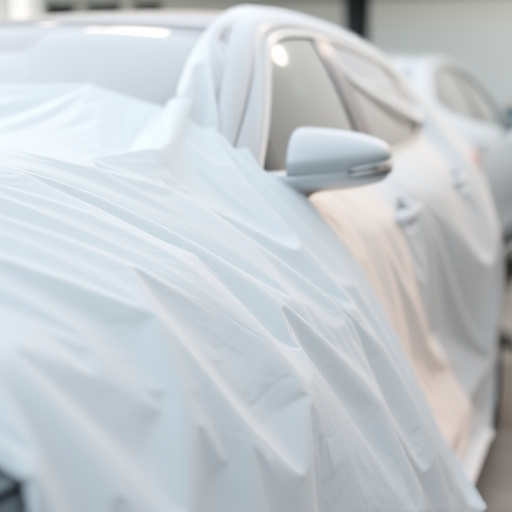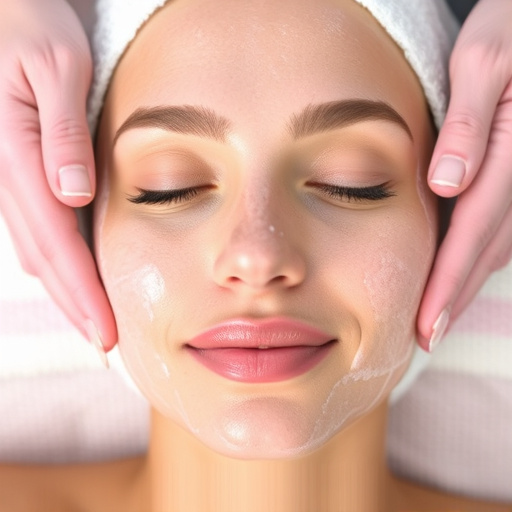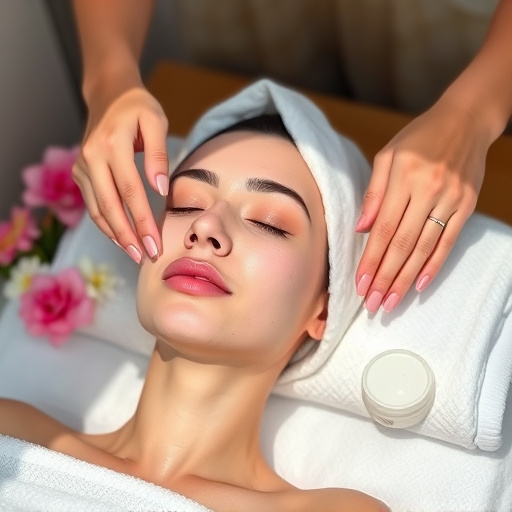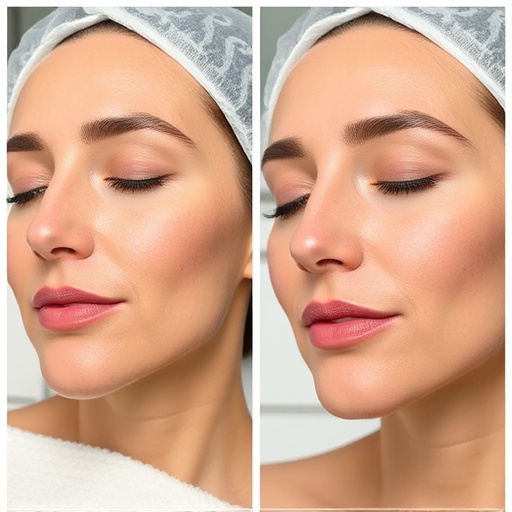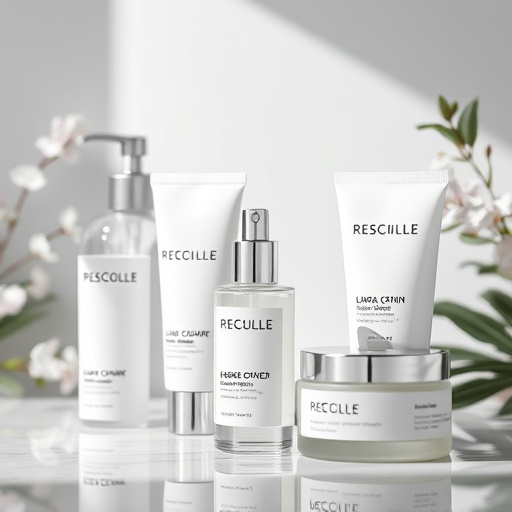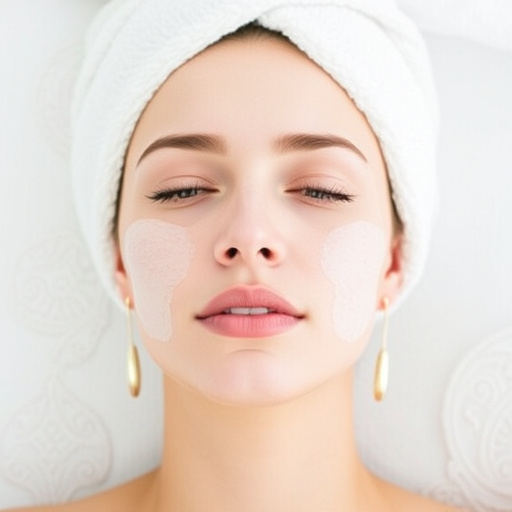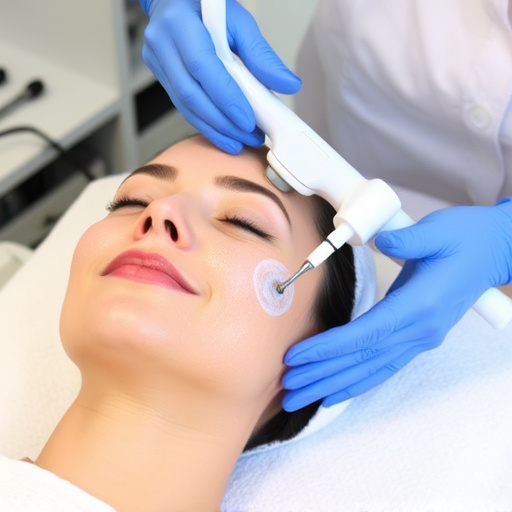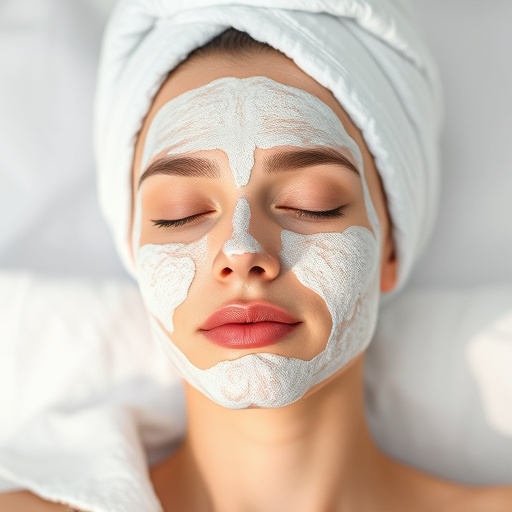Hormonal acne, caused by fluctuating hormone levels and influenced by factors like stress, diet, and skincare, affects teens, pregnant women, and menopausal individuals. Treatment involves addressing these triggers and implementing personalized skincare routines. Over-the-counter topical treatments, dermatologist-prescribed medications like retinoids, and medical spa procedures like chemical peels and laser hair removal are effective solutions. Severe cases may require oral contraceptives or isotretinoin, with customized facials and anti-aging treatments complementing these approaches for clearer, healthier skin. Consulting a dermatologist is key to determining the most suitable hormonal acne treatment plan.
Hormonal acne is a common skin concern affecting millions, often characterized by inflammatory breakouts primarily on the chin, forehead, and nose. This article delves into understanding the root causes and triggers of hormonal acne, offering a comprehensive guide to effective treatments. We explore top topical solutions for management and discuss severe cases requiring medical interventions like oral contraceptives. By the end, you’ll be equipped with the knowledge to choose the best hormonal acne treatment for clearer skin.
- Understanding Hormonal Acne: Causes and Triggers
- Topical Treatments for Hormonal Acne Management
- Oral Contraceptives and Other Medical Interventions for Severe Cases
Understanding Hormonal Acne: Causes and Triggers
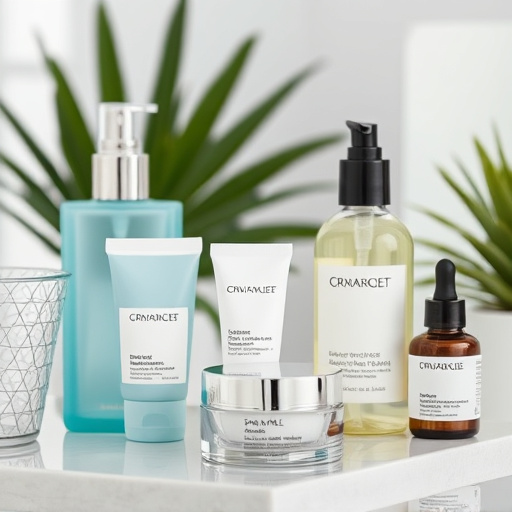
Hormonal acne is a common skin concern, particularly for individuals experiencing fluctuations in hormone levels, such as teenagers, pregnant women, and those going through menopause. It’s more than just a temporary pimple outbreak; it’s a complex reaction between hormones and the skin’s oil-producing glands. The primary culprits are androgens, male sex hormones that can stimulate the production of sebum, the natural oil that keeps our skin moist but, in excess, can lead to clogged pores and acne.
Various factors can trigger hormonal acne, including stress, diet, and lifestyle changes. For instance, increased levels of insulin, often associated with high-sugar diets, can contribute to higher androgen production. Similarly, non-surgical treatments like skincare routines, certain medications, and even extreme weather conditions can impact hormone balance and trigger acne breakouts. Effective hormonal acne treatment involves addressing these underlying causes and adopting tailored skin care practices for clearer, healthier skin.
Topical Treatments for Hormonal Acne Management
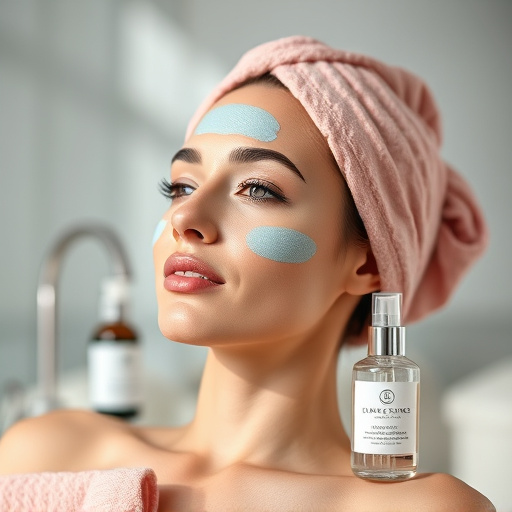
Hormonal acne, a common concern for many, particularly during puberty and pregnancy, requires specific approaches to manage and treat effectively. One crucial aspect of treatment is topical applications, offering a wide array of options to combat this skin issue. Over-the-counter creams and gels containing ingredients like benzoyl peroxide or salicylic acid can help unclog pores and reduce inflammation. These are gentle yet powerful tools for regular use in one’s skincare routine.
For more severe cases, consulting a dermatologist is advisable. They may prescribe topical treatments with higher concentrations of active ingredients, such as retinoids or prescription-strength benzoyl peroxide. Additionally, medical spa services like chemical peels and targeted laser hair removal can address acne scars and excess oil production, providing a holistic approach to hormonal acne treatment and achieving clearer, healthier skin.
Oral Contraceptives and Other Medical Interventions for Severe Cases
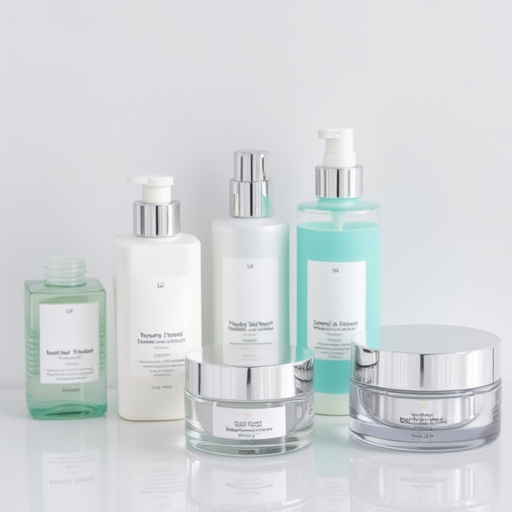
For those struggling with severe hormonal acne, oral contraceptives (OCPs) can be an effective solution. These medications work by regulating hormone levels, which in turn reduces inflammation and excess sebum production leading to clearer skin. They are especially beneficial for individuals experiencing acne linked to reproductive hormones like progesterone and estrogen. However, OCPs might not suit everyone; hence, consulting a dermatologist is crucial.
In addition to oral contraceptives, medical interventions such as isotretinoin (a retinoid) can be prescribed for severe cases of hormonal acne. This powerful medication is highly effective but requires close monitoring due to potential side effects. Customized facials and personalized skincare routines that target specific skin concerns can also complement these treatments. Anti-aging treatments focusing on calming and repairing the skin might be suggested to address both acne scars and aging symptoms simultaneously.
Hormonal acne can be a challenging condition to manage, but with the right approach and products, achieving clearer skin is achievable. By understanding the causes and triggers of hormonal acne, individuals can make informed decisions about their treatments. Topical solutions offer a non-invasive starting point, while oral contraceptives and medical interventions provide more intensive approaches for severe cases. When choosing a hormonal acne treatment, it’s crucial to consider individual needs and consult healthcare professionals for personalized guidance. With the right care, one can effectively manage hormonal acne and restore confidence with clearer skin.

